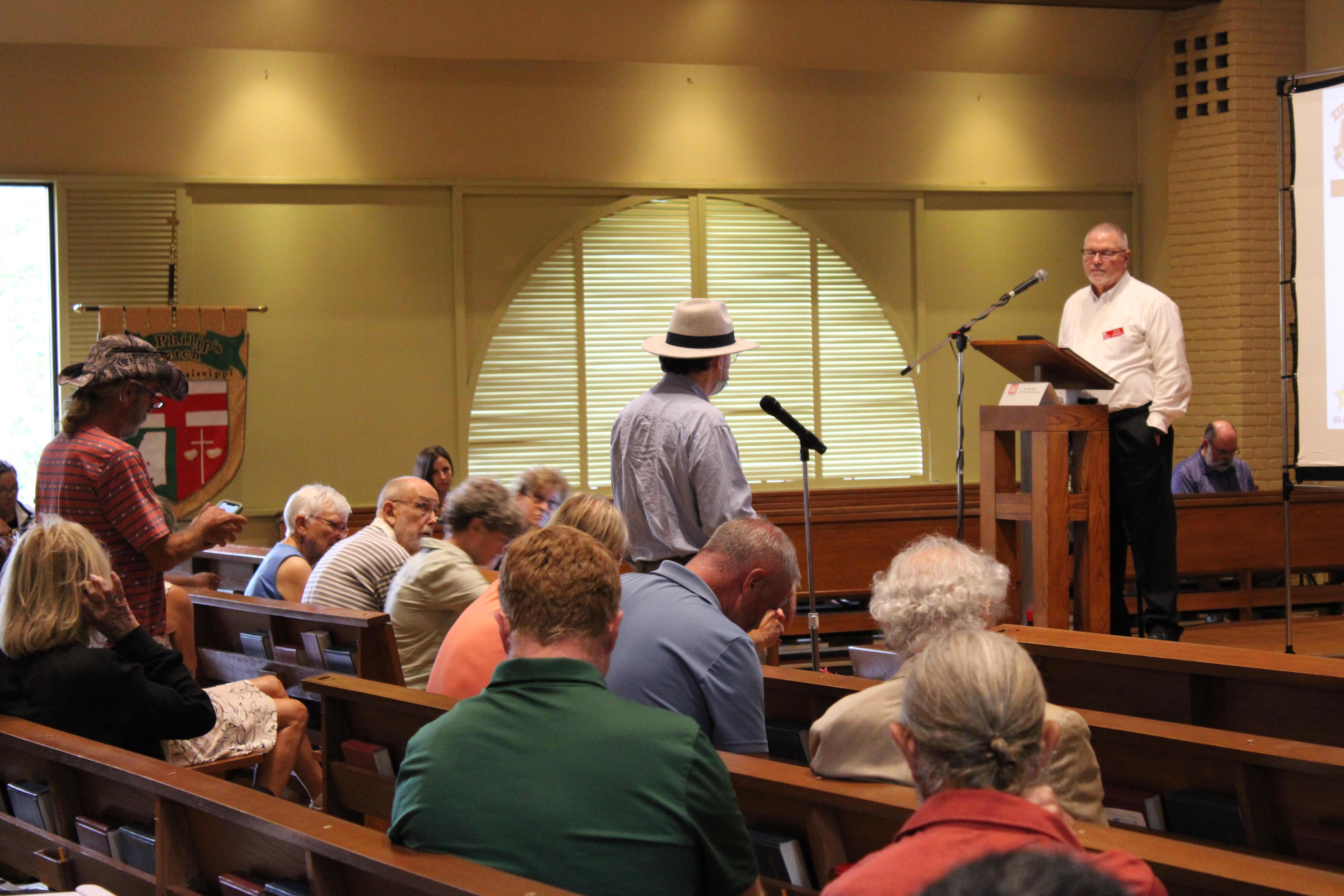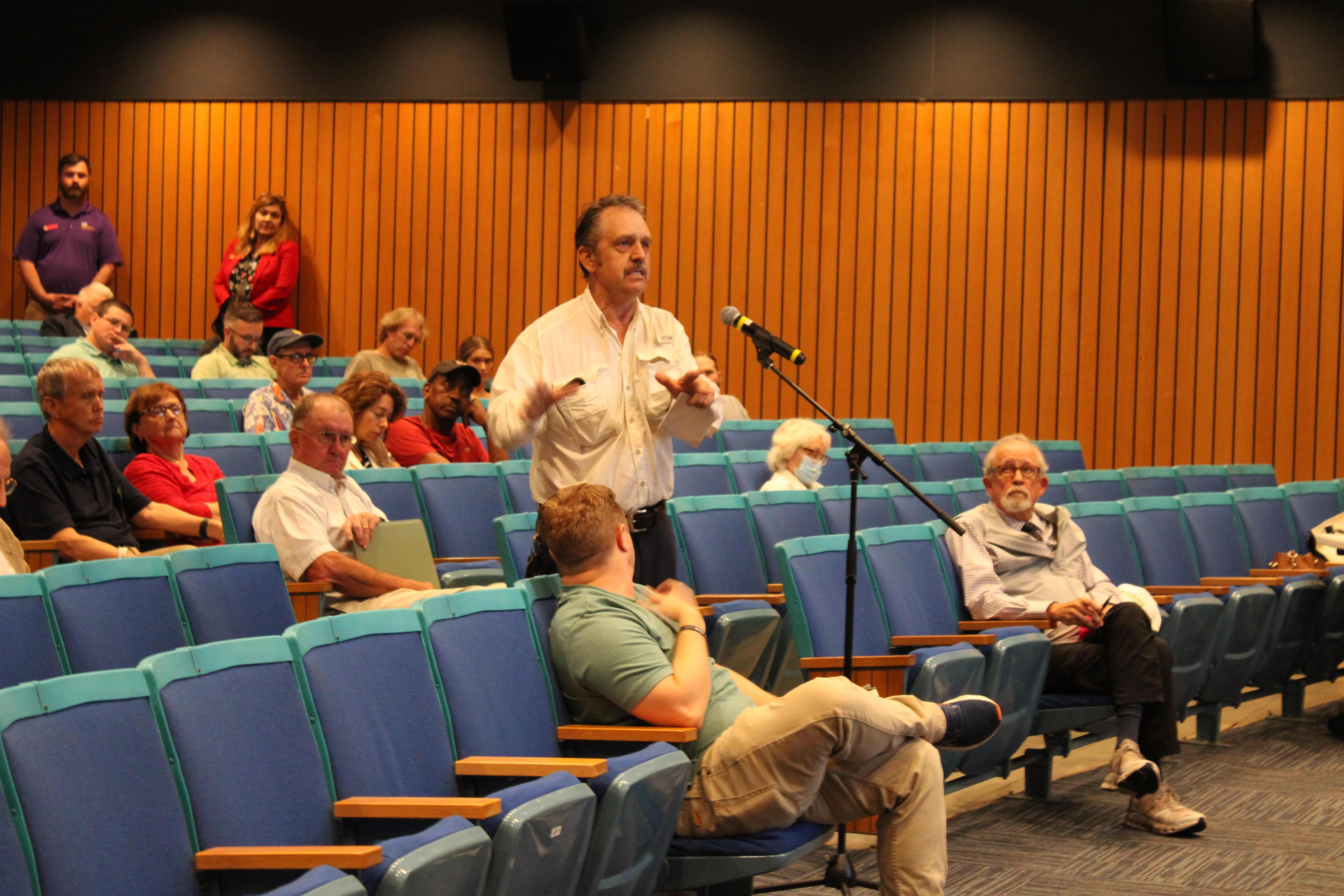Residents were asked to consider two plans during Thursday’s meeting: alternative D1 and alternative E1. A third plan was discussed, but not recommended.
Lt. Col. Jeremiah Gipson is the commander of the U.S. Army Corps of Engineers Vicksburg District. He says the Corps is required to consider a ‘non-structural option’ for the project, or what’s known as alternative A1, where flood-prone communities would need to become more resilient.
“That looks like we want to elevate homes,” he said to MPB News. “We want to flood-proof places of work. But it doesn't prevent floods or roadways from experiencing flooding. It would require, if there's a medical emergency, emergency services to still have to use boats to access an elevated home where someone may have chosen not to evacuate.”
Comment cards from the meeting asked residents to consider potential outcomes of the plans, including cultural and economic impacts, flood risks, impacts to wildlife and health concerns. Residents could select whether they supported plans D1 or E1, opposed both or if they remained undecided.
Susan Garrard, the CEO of the Mississippi Children’s Museum in Jackson, spoke at a meeting held at St. Philips Episcopal Church in Jackson. She says she’s in support of option D1, which would create a 1,700 acre lake-like structure by damming the Pearl River with a weir.
“It requires quality of life amenities like trails, access to water, world-class museums, and other attractions,” Garrard said. “The Compromise Plan, alternative D1, provides real public access to the Pearl River for everyone, as well as a much-needed stimulus to boost our economy, improve our quality of lives and help us retain our brightest and best in the region.”
Several members of the public, including Jackson mayor, John Horhn, expressed excitement and support for the potential economic stimulus a lake could offer the region.
“To be clear, this project does more than protect,” Horhn said. “It reconnects us to the Pearl River and unlocks enormous new opportunities for our capital city. Cities like San Antonio, Texas, Pittsburgh, Pennsylvania, and Columbus, Ohio have revitalized their urban riverfronts and have seen an explosion of economic activity, investment, and growth in their downtown areas. Jackson is ready too.”





